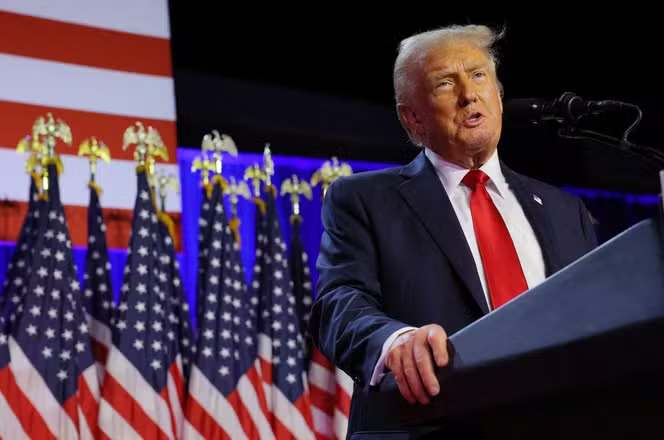In what he referred to as “Liberation Day”, the United States President, Donald Trump has imposed a global tariff on all U.S. trading partners, including a 14% tariff against Nigeria, saying the country operates a trade surplus.
Nigeria in response has acknowledged the tariff imposition, stating its commitment to mitigating the impact while accelerating economic diversification.
In a statement released by Nigeria’s Ministry of Industry, Trade and Investment, the new tariff threatens to disrupt the growth of Nigeria’s non-oil exports, which have been slowly expanding under the African Growth and Opportunity Act (AGOA).
While Nigeria’s exports to the U.S. have traditionally been dominated by crude oil and mineral fuels—accounting for over 90% of the $5–6 billion annual trade volume—non-oil sectors like fertilizers, agricultural goods, and processed products had begun to gain traction.
- Advertisement -
The sudden imposition of a tariff on these products could destabilize small and medium enterprises (SMEs) that had relied heavily on duty-free access to the U.S. market. Although Trump said Nigeria received a “concessionary” 14% rate instead of the 28% his policy originally warranted.
Dr. Jumoke Oduwole, the Honourable Minister of Industry, Trade and Investment, described the move as a “destabilizing challenge,” particularly for emerging businesses in value-added sectors. She noted that increased costs and uncertain buyer commitments could severely affect Nigeria’s competitiveness.
Nevertheless, the Nigerian government is taking a pragmatic approach. Instead of solely lamenting the development, it plans to accelerate its economic diversification efforts.
Measures being rolled out include the expansion of alternative export markets beyond the U.S., enhancements in product quality control, and the strengthening of trade diplomacy. Nigeria is also actively engaging with U.S. trade representatives and the World Trade Organization (WTO) to address the implications of the tariff.
The Tinubu administration views the situation as an opportunity to bolster Nigeria’s resilience and reduce dependency on Western markets.









